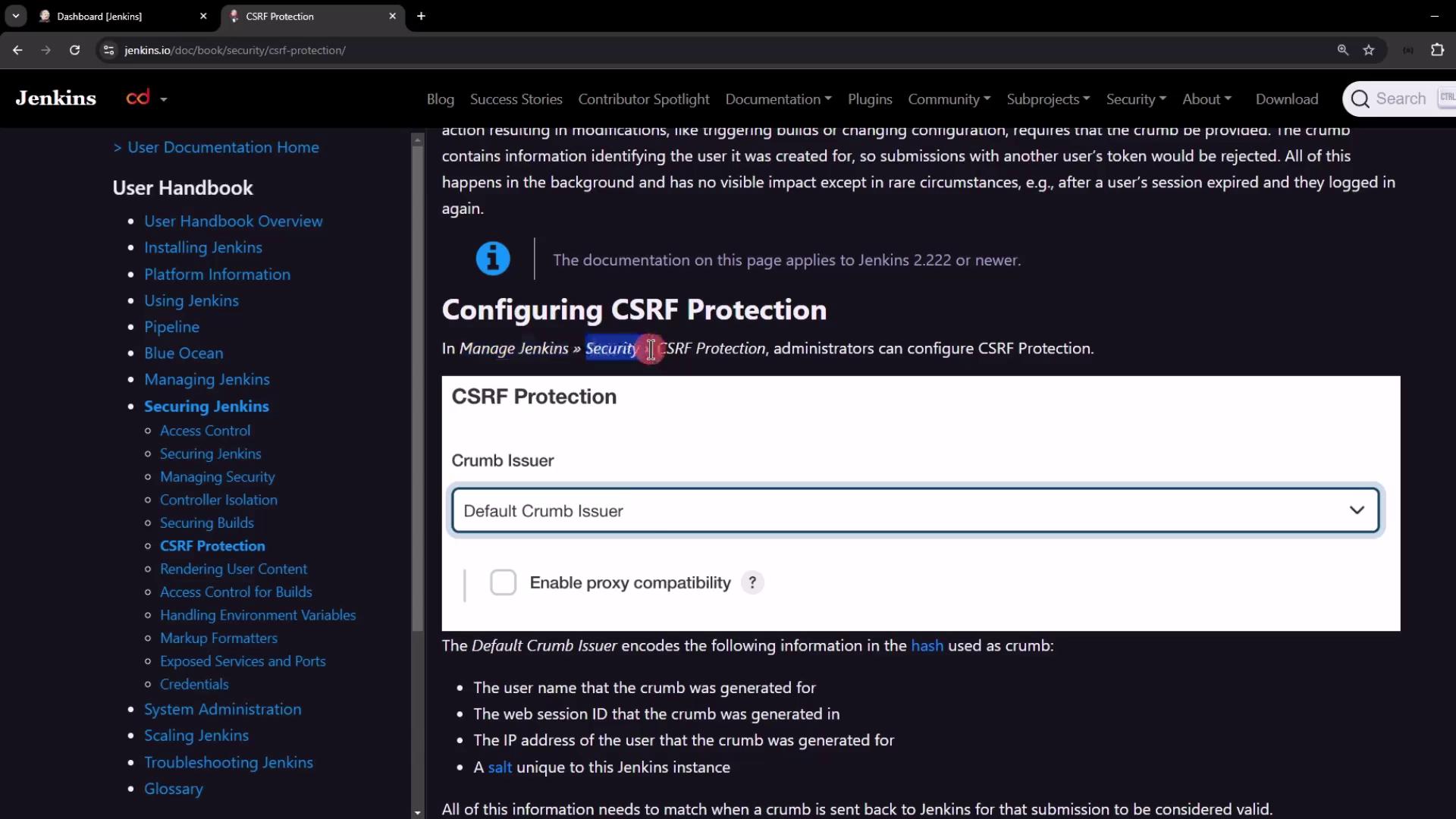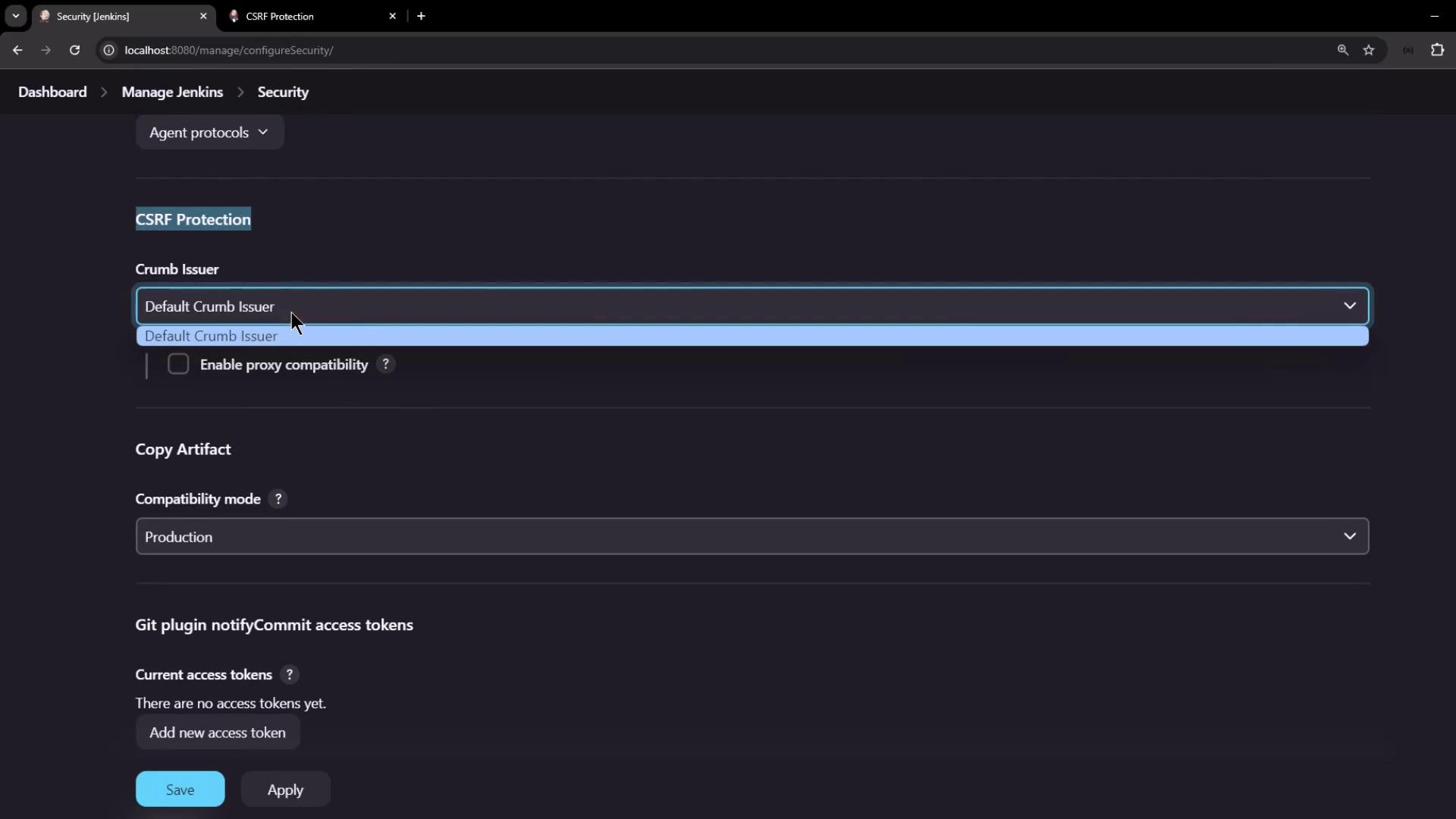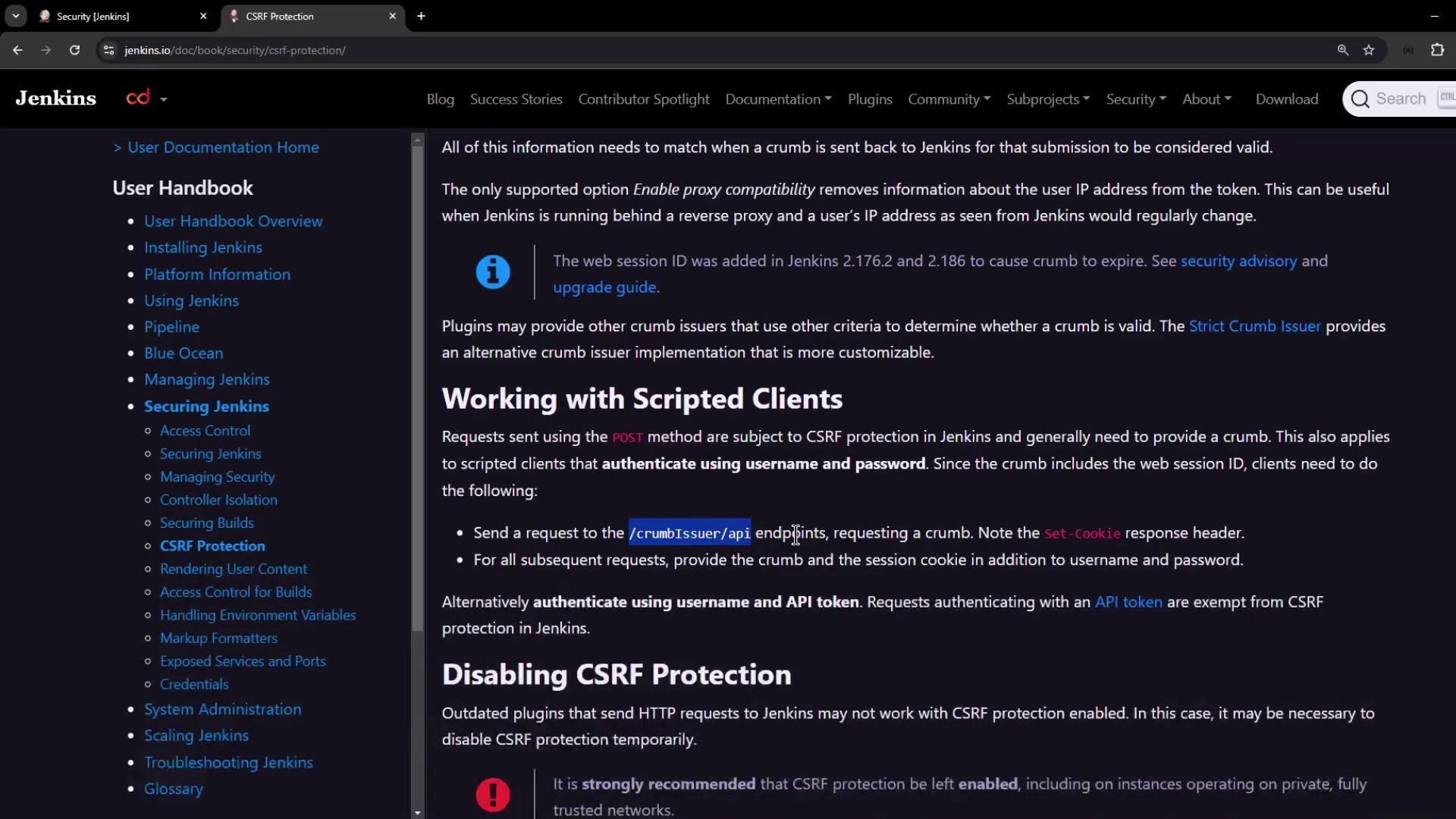In this guide, we’ll walk through generating and using Jenkins CSRF crumb tokens to secure HTTP requests against Cross-Site Request Forgery attacks. You’ll learn how to configure Jenkins for CSRF protection, retrieve crumb tokens via the REST API, and trigger jobs with the proper headers and cookies.
Jenkins CSRF Protection Configuration By default, Jenkins enforces CSRF protection. As an administrator:
Go to Manage Jenkins → Configure Global Security .
Locate the CSRF Protection section and confirm it is enabled.
Disabling CSRF protection is not recommended in production. If you must disable it (for testing only), set the system property hudson.security.csrf.GlobalCrumbIssuerConfiguration.DISABLE_CSRF_PROTECTION=true
at server startup. Default Crumb Issuer Jenkins’s Default Crumb Issuer generates a token hash from several session-specific values. All must match when validating an incoming request:
Encoded Value Description Username The authenticated user’s login Session ID Unique identifier for the Jenkins session User IP Address Client’s source IP Instance Salt A secret salt unique to this Jenkins node
Working with the Crumb Issuer API The crumb is exposed at the REST endpoint /crumbIssuer/api/json. Authenticate with username/password or API token to receive:
A JSON payload containing the crumb and header field name
A session cookie to include on subsequent requests
1. Generate and View the Crumb curl -s \ -u admin:password \ http://localhost:8080/crumbIssuer/api/json | jq
{ "_class" : "hudson.security.csrf.DefaultCrumbIssuer" , "crumb" : "628e6eb7b759cb388daec3a44de4e1fcde5da95edcbd779d8b9967c1239de5cff" , "crumbRequestField" : "Jenkins-Crumb" }
View the Set-Cookie header to capture the session ID:
curl -s -v \ -u admin:password \ http://localhost:8080/crumbIssuer/api/json > /dev/null
Example header output:
Set-Cookie: JSESSIONID.<...>=node01ylzmgr6pjx...; Path=/; HttpOnly
3. Store Cookies with a Cookie Jar Save the session cookie for later use:
curl -s \ -u admin:password \ --cookie-jar /tmp/jenkins_cookies \ http://localhost:8080/crumbIssuer/api/json | jq
{ "_class" : "hudson.security.csrf.DefaultCrumbIssuer" , "crumb" : "28791665a0a7f47ecf03510ae3b0b2695e01d3e3f2d0ba96d1d230898051059a" , "crumbRequestField" : "Jenkins-Crumb" }
Verify the stored cookie:
Using --cookie-jar ensures your session cookie is persisted securely between requests.
Triggering a Parameterized Job with the Crumb With both the crumb token and session cookie saved, you can trigger a build:
curl -s \ -u admin:password \ --cookie /tmp/jenkins_cookies \ -H "Jenkins-Crumb: <crumb_value>" \ -X POST "http://localhost:8080/job/parameterized-pipeline-job/buildWithParameters" \ -d BRANCH_NAME=test \ -d APP_PORT= 6767
After execution, verify the new build appears in the Jenkins UI.
Alternative: API Token Authentication If managing cookies and crumbs is cumbersome, switch to API token authentication. Requests using an API token are automatically exempt from CSRF checks, streamlining your CI/CD scripts.
Links and References 

